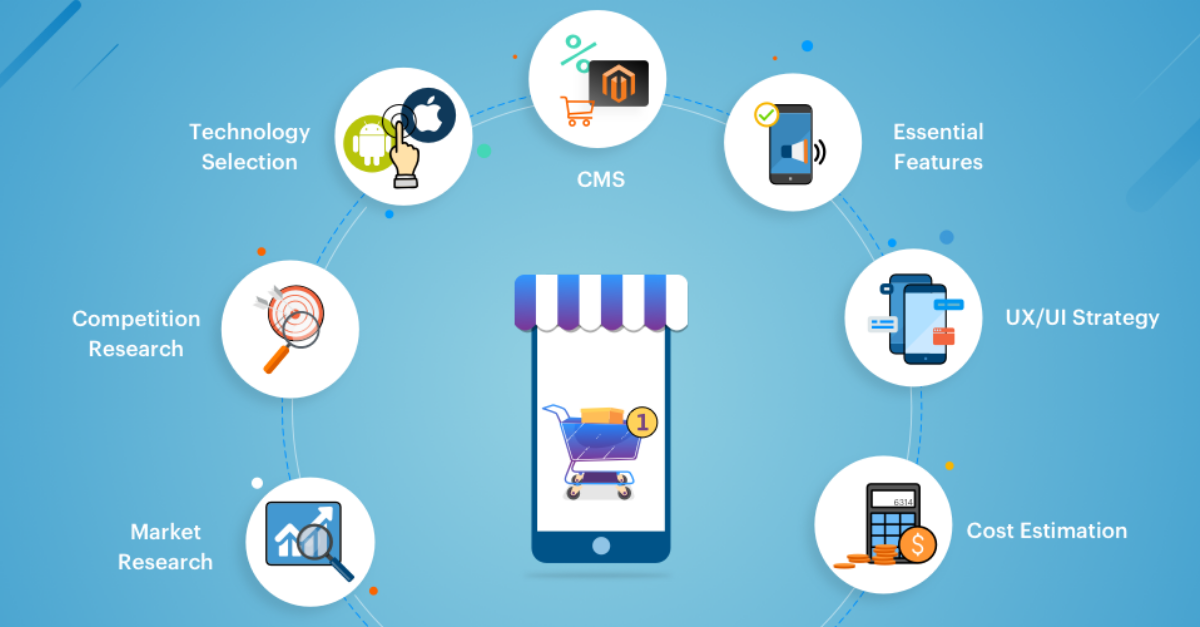Shop At Haya: Your Ultimate Shopping Guide
Discover the best shopping tips, trends, and deals for a smarter buying experience.
Building an Online Store Without Losing Your Mind
Master the art of creating an online store with ease! Avoid common pitfalls and thrive without the stress. Click to discover how!
Essential Steps to Launch Your Online Store Stress-Free
Launching your online store can be a daunting task, but with the right approach, you can make the process stress-free. Start by defining your business niche and target audience. Understanding who your customers are will help you tailor your products and marketing strategies effectively. Next, choose the right e-commerce platform that suits your needs, as this will be the backbone of your online store. Popular options include Shopify, WooCommerce, and BigCommerce. After selecting a platform, ensure to create a well-structured website with user-friendly navigation, as this will enhance the shopping experience for your customers.
Once your website is set up, it's time to focus on inventory management. Decide whether you will hold stock, use dropshipping, or a combination of both. Following this, set up secure payment gateways to provide your customers with various options to pay. Don’t forget about implementing an effective marketing strategy to attract visitors to your store. Consider using social media, email marketing, and SEO tactics to boost your online presence. By following these essential steps, you can launch your online store confidently and stress-free.

Top 10 Mistakes to Avoid When Building Your Online Store
Building your online store can be an exciting venture, but it’s crucial to avoid common pitfalls that can hinder your success. One of the top mistakes is neglecting user experience. A complicated website layout or slow loading times can deter potential customers. Ensure your site is responsive and easy to navigate, as this will create a seamless shopping experience. Additionally, failing to optimize your product pages with high-quality images and detailed descriptions can lead to decreased conversions.
Another major mistake to avoid is overlooking SEO best practices. Properly optimizing your online store for search engines is vital for attracting organic traffic. This includes incorporating relevant keywords in your product titles, descriptions, and meta tags, as well as utilizing alt text for images. Furthermore, ignoring the importance of a solid marketing strategy can leave potential customers unaware of your store's existence. Make sure to invest time in promoting your online presence through social media, email marketing, and other channels.
How to Choose the Right E-Commerce Platform for Your Business
Choosing the right E-Commerce platform for your business is a critical decision that can impact your online success. First, consider the key features that your business needs, such as payment gateway options, inventory management, and customizable design templates. It’s essential to evaluate how each platform handles these features, especially if you anticipate scaling your operations in the future. A strong platform should also offer robust customer support and security measures to protect your transactions.
Next, think about the costs associated with each platform. Many e-commerce solutions operate on a subscription basis, while others may charge transaction fees. Create a budget and compare the total cost of ownership for each option. Additionally, consider the user experience for both you and your customers; a mobile-friendly interface and easy navigation are crucial for optimizing sales. Finally, read user reviews and conduct a demo to ensure that the platform aligns with your business goals and growth strategy.